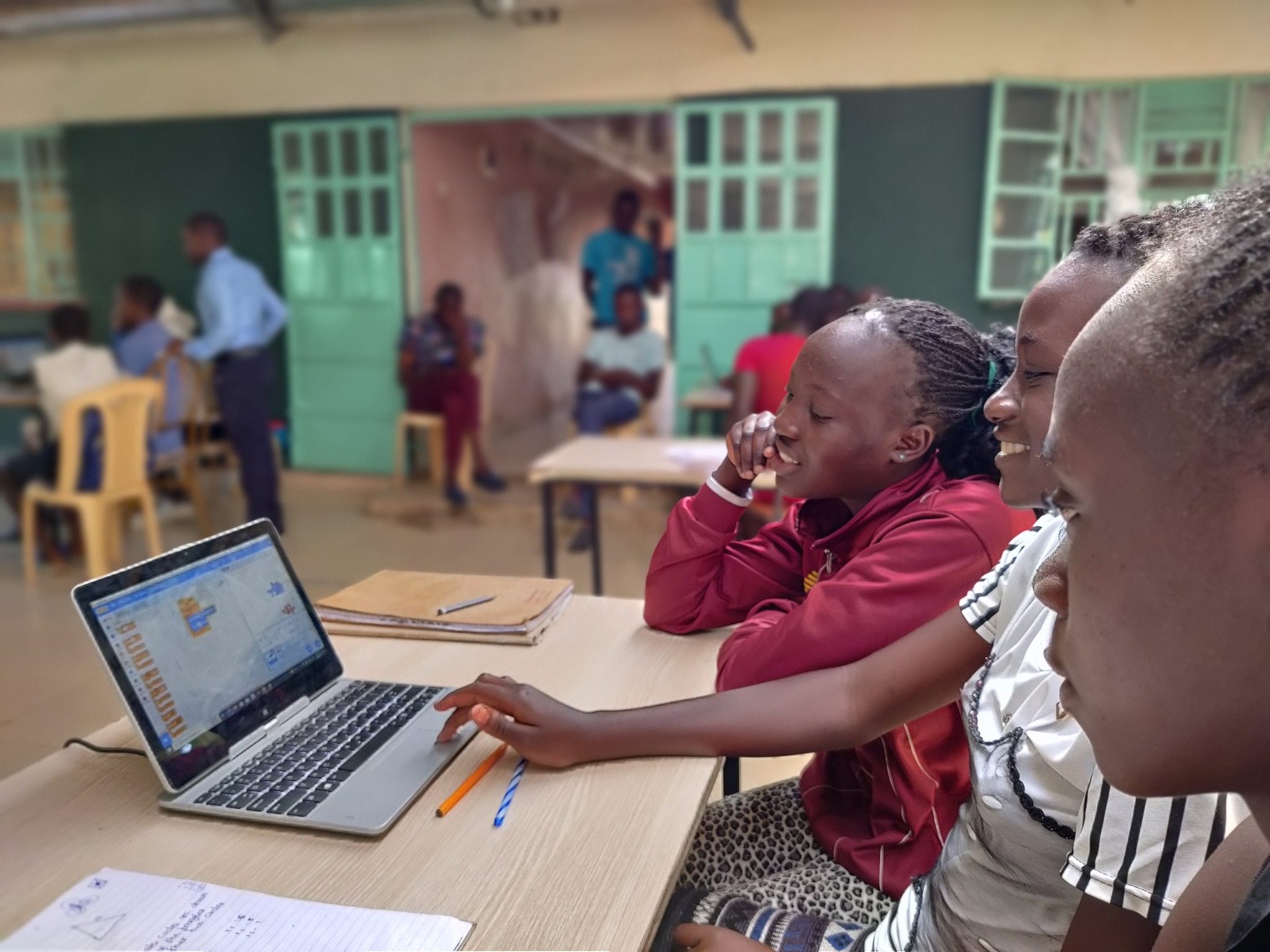In Kenya, install a solar power system to power a Vocational Training Center, enhancing students' learning experiences and engagement.

Project: Sustainable Energy for STEM Education and Vocational Training for rural students and out of schoolgirls in western Kenya
Country & region/location: Kenya, Kanyawegi Village, Kisumu County
Category: Energy & Education
As urban students get exposed to the world of artificial intelligence & robotics, high technology costs, poor internet access, & unreliable electricity hold back their rural counterparts, creating an uneven playing field, hindering the potential of talented rural youth & perpetuating social & economic inequalities, as students from urban areas with better resources gain a significant advantage. Rural girls are disproportionately affected. They drop out of school & engage in transactional sex for basic needs like sanitary pads and food, exacerbating the triple threats of teenage pregnancies, gender-based violence & HIV infection. Frequent power outages disrupt educational activities, affecting essential equipment.
The Akili STEMarts Academy & Vocational Training Center in rural Kenya serves 2500 primary and high school students annually through STEM camps and mentorship. Courses offered include math, science, coding, robotics, and climate solutions/smart agriculture. The Academy provides marginalized students a safe space to learn STEM skills, promoting critical thinking and fostering sustainable livelihoods and independence. About 60 out-of-school girls receive entrepreneurship and vocational training. Additionally, the Academy hosts about 150 educators for capacity building in STEM pedagogy, and 4000 students from 23 partner schools benefit from subsidized uniforms made by trainees and staff.
Riley Orton Foundation will install a solar power system to power the entire Academy, including classrooms, computer labs, vocational training workshops, staff and volunteer quarters, and essential infrastructure such as the water well and security lighting. This comprehensive approach ensures all educational and operational activities can run smoothly without interruptions. This will not only enhance educational outcomes by enabling the continuous use of computers and other essential tools but will also support vocational training by providing a stable power source for electric sewing machines, thereby enhancing the quality and effectiveness of programs for out-of-school girls.
The project will also facilitate the successful hosting of overnight STEM camps by providing illumination across the entire campus, enhancing students' learning experiences and engagement. By supplying electricity and lighting for staff quarters, the project will improve living conditions for educators and staff, fostering a conducive working environment. Reliable power is also instrumental in attracting students and educators from a wider geographical coverage in Western Kenya, thus enriching the academy's reach and impact.
Finally, the solar energy system will ensure a dependable water supply by powering the water pump for the community borehole located at the campus. This will address the critical need for consistent water access and reduce the academy's energy costs and carbon footprint, providing long-term financial stability.
Expected results:
- Solar energy for 2 computer labs, 4 classrooms, 2 STEM labs, 3 dormitories, 2 garment-making workshops, 4 admin offices, 5 staff/volunteer houses, and 1 water pump
- 4 labs/workshops equipped with furniture, 30 computers, 20 STEM/Robotics kits, and internet equipment
- 100 students and 20 staff and volunteers trained in basic solar equipment maintenance
- 2000 girls and boys participate in 5 STEM camps, and 60 out-of-school girls trained in garment-making
- Increased access to uninterrupted STEM education and vocational training, improved learning environments and operational efficiency during vocational training and STEM educational activities
- Enhanced digital literacy and practical STEM education
- Savings of around ~520€/month, ~6.000€/year
- Community has access to water for a small fee, reducing water-fetching time for students and community
- Improved health and hygiene


